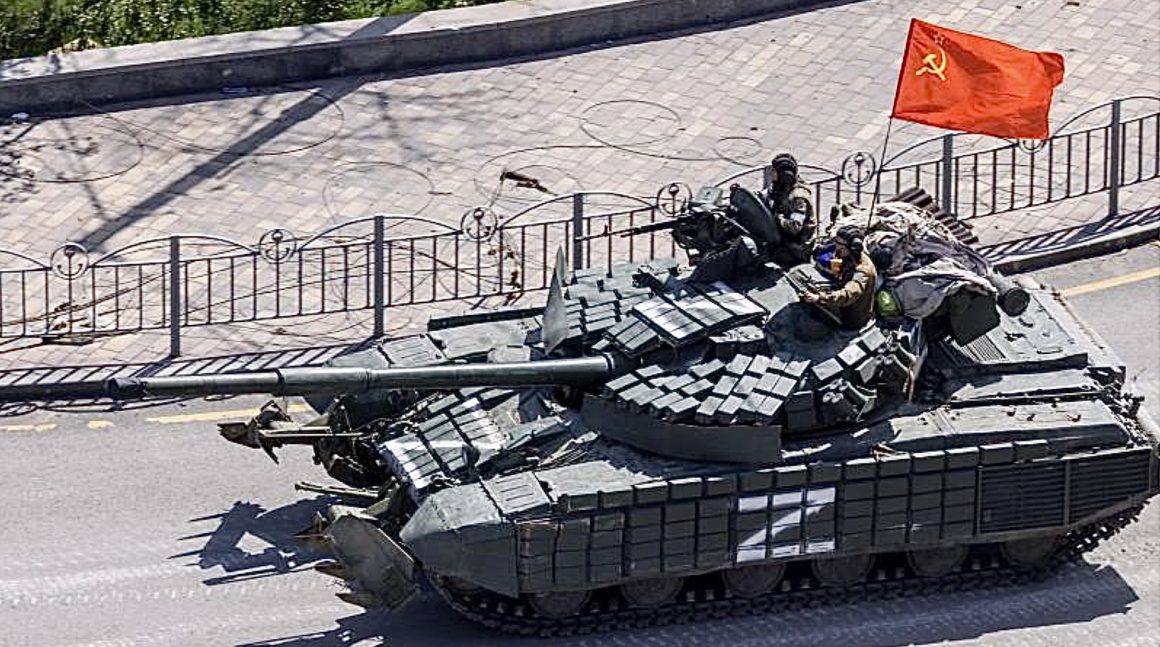In terms of international developments, revolutionary progress is doing spectacularly during this moment, and it will no doubt get even more robust. U.S. hegemony is in an irreversible, accelerating state of decline. This isn’t because imperialism no longer is capable of doing any damage—the latest U.S. coup in Peru shows it still is—but because history has already transitioned to multipolarity.
Optimistic situation internationally, bleak situation domestically
The ideologically soft type of Latin American leftism that the deposed president Pedro Castillo represented was more useful during the first couple of decades following the rise of Hugo Chavez, when U.S. imperialism had yet to globally decline so much and wasn’t quite carrying out an Operation Condor 2.0. Now that multipolarity has been realized, Washington is waging unrestrained war against its challengers in its “backyard,” trying desperately to maintain neo-colonial control.
Against this violence, the soft left is ineffectual. Marxism-Leninism represents the greatest hope for the region’s liberation. This is why Venezuela’s communist party is trying to solidify the country’s anti-imperialist movement. Its goal is not to sabotage the gains Venezuela has already made, but to complete the country’s revolution. It’s getting ready to contribute to the third wave of revolutions, following the waves from the Paris Commune and Russian revolution eras.
With the rise of China’s Belt and Road Initiative, and Russia’s military and economic victory within the Ukraine conflict, the conditions are being cultivated for such a development. The more the peripheral countries gain the means to economically function independently from the IMF, and the more costly the Ukraine proxy war becomes for Americans and Europeans, the more imperialism is economically weakened. China is destroying its global economic strength, while Russia is destroying its internal economic strength.
They’re carrying out these victories simply by making the rational maneuvers in response to the crises which imperialism has created. China is working to undo the global neo-colonial inequities Washington seeks to perpetuate, and Russia is neutralizing the fascist presence Washington established in Ukraine. Washington set itself up for these events by acting as an imperialist power. Now the world is getting rid of the great hindrance which is U.S. global dominance, and building a new paradigm of cooperation and equitable development. It’s not just Russia and China that are leading this effort. Mali has been kicking out French non-governmental organizations, reflecting a broader trend among African countries to banish those who underhandedly try to run imperialist influence operations.
The less relevant Washington and its imperial partners become abroad, the more potential the peripheral world’s revolutionary organizations get to gain power. The same is true in the imperial center, but it’s true in a different sense. Revolutionaries in the core face an obstacle which the ones in the exploited countries don’t face.
This is that whereas the neo-colonial states exist due to the perpetuation of imperialist meddling, the state within the imperial center exists because the entire basis of its existence is to serve as the instrument for carrying out imperial extraction. And in the United States, Canada, Australia, and New Zealand, this extraction is doubly parasitic, and therefore poses even more of a challenge to class struggle. Because in these countries, the imperial extraction is both external and internal. They gain strength from both neo-colonial exploitation, and the exploitation of their indigenous first nations. Which is why whereas the international situation for revolutionaries is increasingly optimistic, the domestic situation for revolutionaries in the core is increasingly filled with defeat.
Until we sufficiently build up the communist movement, we’ll remain in a situation where the ruling class can sabotage workers rights struggles with impunity. Biden was successful at suppressing the railroad strikers because the proletariat doesn’t yet have anywhere near the organizational strength it needs to intimidate the government into making serious concessions. This reality of a long-crippled workers movement is why Generation Z has descended into apathy, more than any other living generation. It’s so difficult to get our youngest adults into the streets because they’re a defeated class. It wasn’t only the pandemic that broke so many of them, and conditioned them to be terminally online. It was the overwhelming power of the bourgeois state in the imperial center, and how this state has been able to appear unbeatable even as it’s gotten exposed for so many atrocities.
If the anti-democratic campaign against whistleblowers, the willful exacerbation of the climate crisis and the pandemic, and the intensified post-2008 assault against the working class haven’t provoked youth resistance on the scale of the anti-Bush movement, there’s clearly a widespread sense that a better future isn’t possible. When Gen Z is entering into the worst workforce situation of our lifetime, and has even less hope for owning houses than millennials do, brokenness on a mass scale feels like the only possible outcome.
The path to class liberation
What communists in the U.S. need to do is rebuild our movement. We must make Marxist-Leninist theory mainstream again. Only then can we gain the social base for our cause in the coming class confrontation. There absolutely is a route towards proletarian liberation in the core, but it looks different from what one assumes when they don’t grasp the nature of our social reality in this country. The hidden aspect of our conditions is that settler-colonial relations, in which indigenous territory gets exploited while the wealth produced by African slave labor serves as the economic foundation, hold back the class struggle’s development.
There’s a reason why the U.K. communist movement is so militant and robust compared to those of the U.S. or Canada: the settler-colonial countries have long stolen enough land for this land to act as a buffer against threats towards capital, absorbing the blowback from class contradictions. This is done by displacing the costs of capitalism’s crises onto the indigenous population, with this also applying to the black population when it comes to the USA. These groups are historically the most impoverished in the country, and remain relatively poor as neoliberalism destroys the livelihoods of workers from all backgrounds.
By creating an imperialism that’s both external and internal, these states have built a liberal totalitarianism, in which subjugation functions under a pseudo-democratic guise. Howard Zinn described this fraudulent democracy as the essential tool for perpetuating the oppression:
The American system is the most ingenious system of control in world history. With a country so rich in natural resources, talent, and labor power the system can afford to distribute just enough wealth to just enough people to limit discontent to a troublesome minority. It is a country so powerful, so big, so pleasing to so many of its citizens that it can afford to give freedom of dissent to the small number who are not pleased. There is no system of control with more openings, apertures, leeways, flexibilities, rewards for the chosen, winning tickets in lotteries. There is none that disperses its controls more complexly through the voting system, the work situation, the church, the family, the school, the mass media–none more successful in mollifying opposition with reforms, isolating people from one another, creating patriotic loyalty.
Under these conditions, the class struggle can’t succeed without addressing the question of militancy. Which is where Operation Z, and the nature of its victory over NATO, must inform the revolutionary effort in the core.
The way Russia has beaten NATO in Ukraine and the broader economic war, despite the imperialist countries having the advantage of getting propped up by neo-colonial extraction, is by getting the imperialists to exhaust their own tools. Russia was able to use up only a quarter of its potential mobilization capacity by the same time that Kiev had lost fatal amounts of its manpower, and that NATO had run out of the optimal supplies to give Kiev. This has rendered Ukrainian victory impossible, and has therefore made Washington’s geopolitical gamble in Ukraine fail to pay off. Europe and America are on track to experience worse costs from the sanctions compared to Russia, and for this sacrifice, the imperial powers haven’t gotten the Russian destabilization scenario they hoped for.
The revolutionary forces in the USA will be able to apply a parallel treatment towards our bourgeois state. So long as we’ve sufficiently reached the institutional strength and militant cadre training that will be required for such a task, this task will be fulfilled. The imperial center’s character as a settler state, in which capital can fortify itself by leaning onto the legacy of colonization, vindicates the stance that every one of our cadres should put itself through a rigorous militancy training process. Because when we’ve both won the people through mass work, and equipped our internal organizations with the tools for militancy, we’ll be prepared to initiate a flip within the power structure.
Class struggle is going to continue to intensify, even if much of the youth are apathetic. The bourgeois state’s refusal to give the workers their rights in the midst of a depression guarantees it. So is the case for the struggles of the oppressed nations, which face the worst of these economic impacts and a police state that grows deadlier by the year. If the revolutionaries have gained enough strength by the time these tensions produce another great uprising, this uprising will serve as the catalyst for America’s equivalent to Operation Z. Which is to say the revolutionary forces here may manage to not just denazify the country, but demilitarize the bourgeois state in the process.
The revolt will be concentrated in the cities, where there are too many people for the government to hold under control in an upheaval scenario. When the fascists start to lose in the urban areas, they’ll retreat to the rural areas, where for a time they’ll gain a territorial advantage like the Ukrainians have. But also like the Ukrainians, they’ll ultimately be defeated. Once state control in the cities gets switched to the revolutionary side, the reactionaries will have lost the most important strategic locations. They’ll try to maintain a presence by carrying out acts of terrorism against the smaller localities, sabotaging water and electricity. They’ll try to carry out as many massacres as they can. But if the revolutionary cadres are prepared, the fascists will fail to eliminate their enemies. The rural cadres may need to retreat to the cities for a time, but there they’ll be able to assist the effort towards liberating the entire continent from fascism. We must get ready to defend our communities, and we must assess our surroundings in a strategic fashion so that we can carry forth the real task: defeating the enemy as a social force.
I don’t expect to reach everybody in Generation Z, not until our socioeconomic conditions are changed and all of society gets the opportunities for a prosperous and connected lifestyle. But as I navigate our revolutionary task, I realize that getting these alienated young people to participate in it can bring beautiful changes to their lives. Marxist-Leninist theory is the tool for freeing the youth from their apathy. Whoever among them learns this theory, and commits to applying it to their conditions in the fashion our conditions call for, will gain a purpose.
Pay close attention to today’s international events, because they portend to our own future. They provide the map for the route out of our bleak situation.
—————————————————————————
If you appreciate my work, I hope you become a one-time or regular donor to my Patreon account. Like most of us, I’m feeling the economic pinch during late-stage capitalism, and I need money to keep fighting for a new system that works for all of us. Go to my Patreon here.








